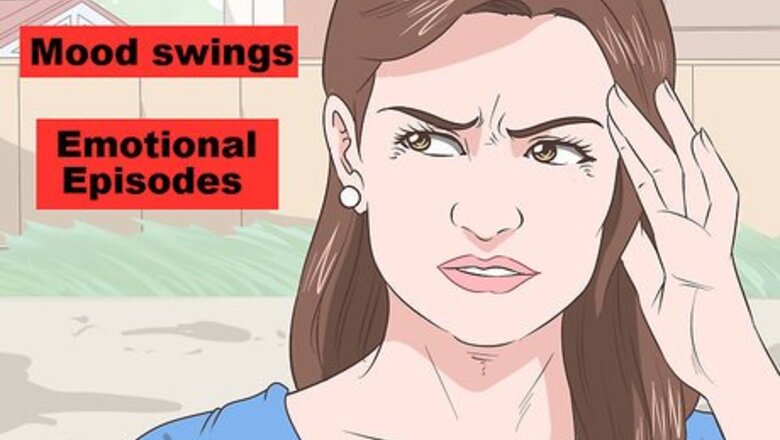
views
Checking for Signs of PPD
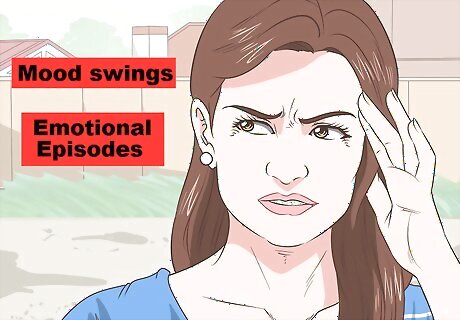
Track mood swings and emotional episodes. Mood swings are common in PPD. To help your doctor make a diagnosis, keep a journal every day. Write down your emotions and how you feel at various parts of the day. In particular, watch out for: Panic attacks Anxiety Anger or snapping at loved ones Irritability Unreasonable or unexplained fear Crying episodes Extreme sadness Overwhelmed or hopeless feelings
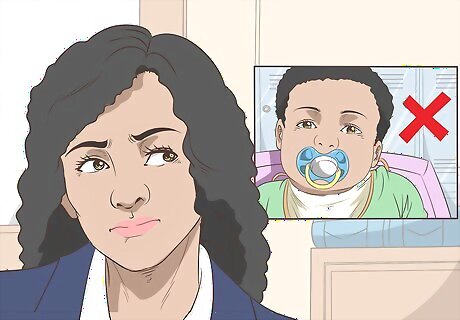
Reflect if you feel disinterested in your partner, baby, or friends. Withdrawal from relationships is a major sign of PPD. You may lose interest in socializing or you may fail to bond with your baby. Your relationship with your partner may also be affected. If you're uncertain about the state of your relationships, ask your friends, family, and partner for their opinion. They may be able to point out symptoms you haven't noticed.
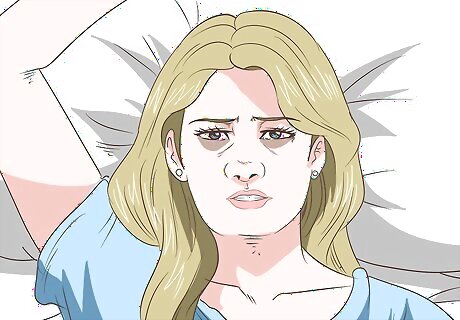
Watch out for irregular sleep and eating patterns. Postpartum depression can cause you to lose sleep or to stop eating. As a result, you may feel more tired than normal or physically weak. Try to keep track of how much you are sleeping and eating, either by using an app or the same journal as you use for your moods. Apps to track your sleeping and eating patterns include MyFitnessPal or Fitbit. It can be hard to get enough sleep as a new parent. If you have PPD, however, your sleep may also be restless or you may wake up feeling exhausted.
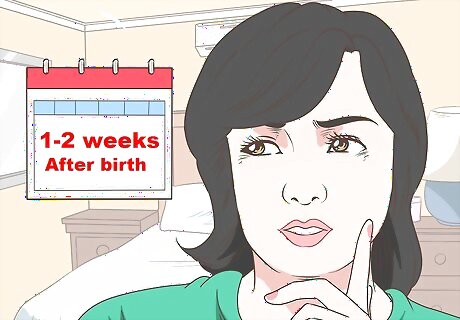
Determine how long you have been experiencing symptoms. It is normal for some women to feel emotional or sad for the first few days after birth. This is called the baby blues. This may pass 1 or 2 weeks after birth. If your symptoms last longer than this, however, get help. If you are feeling seriously overwhelmed or upset, even right after the birth of your baby, it is okay to reach out to family, friends, doctors, or a therapist for help. While it may be too early to tell if you have PPD, reaching out can help you cope with the stress of having a baby. Symptoms of PPD can develop up to a year after having your baby.
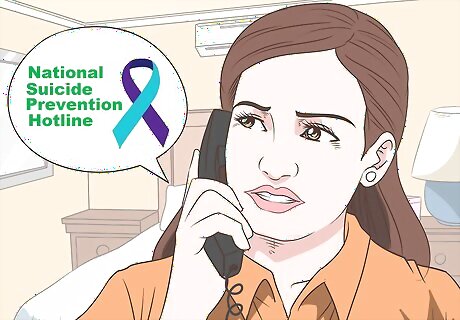
Reach out to a doctor or crisis hotline if you are thinking of suicide. If you have suicidal thoughts, call for help immediately. A doctor, therapist, or suicide hotline can provide counseling and assistance to help you get through this difficult period. In the U.S. and Canada, call the National Suicide Prevention Hotline at 1-800-273-TALK (1-800-273-8255). In the U.K. and Ireland, call Samaritans at 116 123. In Australia, call the Lifeline Australia at 13 11 14.
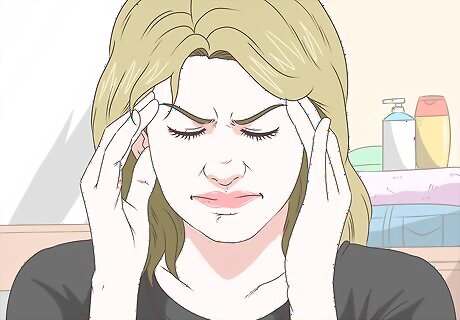
Get immediate help if you have hallucinations or paranoia. These are all symptoms of postpartum psychosis. In addition to delusions, you may also have thoughts of harming your baby. This is a serious issue that needs to be treated immediately. Call a doctor for more advice.
Diagnosing PPD
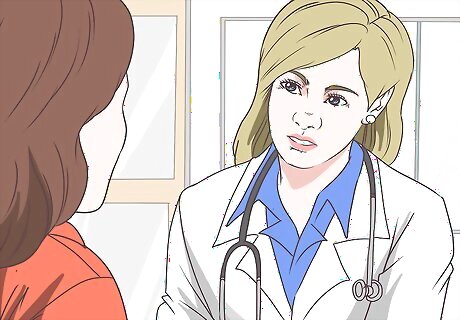
Schedule an appointment with your doctor. It never hurts to ask a doctor for their professional opinion. Next time you visit your OB/GYN or primary care physician, tell them how you have been feeling recently. Be sure to bring any journals or notes you have been keeping. If you have already scheduled a postpartum visit with your doctor, this appointment is a good time to talk to them about your concerns. While you’re there, ask for a referral to a mental health therapist. While your doctor may be able to diagnose you with PPD, a mental health professional can provide counseling.

Contact a mental health professional for counseling and treatment. A psychologist or therapist can provide counseling to help you feel better and, if necessary, help you bond with your baby. Your doctor can refer you to a therapist. Tell the therapist about any recent mood swings, fights with your partner, or suicidal thoughts. Let them see any journals you have kept.
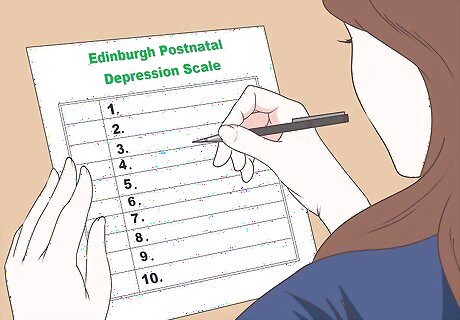
Take the Edinburgh Postnatal Depression Scale. This questionnaire can help identify how likely you are to have PPD. Answer the 10 questions honestly. Your doctor or therapist will help you score it. A score of 13 or above means that you are likely to have some form of depression. If you score lower than 13 but still feel depressed, anxious, withdrawn, or suicidal, you should still visit a mental health professional. Either your doctor or your therapist may give you this scale. Alternatively, you can fill it out yourself and bring it to an appointment.
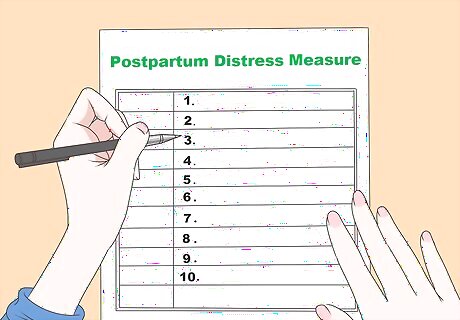
Fill out the Postpartum Distress Measure. Instead of or in addition to the Edinburgh Scale, you may receive the Postpartum Distress Measure from your doctor or therapist. This 10 question survey analyzes your chances of having PPD. Answer the questions according to how you have felt in the past week. If you want, you can take this questionnaire before visiting your doctor. You will need to show your doctor your results so that they can analyze it. You can find it here: http://postpartumstress.com/admin/wp-content/uploads/2012/02/Postpartum-Distress-Measure_4.25.12.pdf
Treating PPD
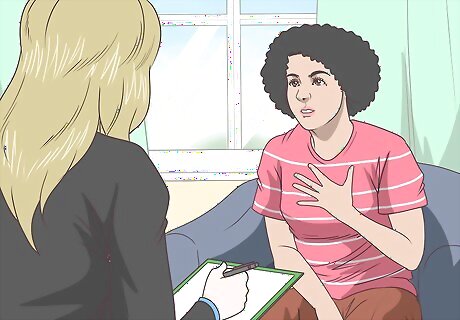
Attend regular therapy sessions. Counseling is the best way to cope with PPD. Your therapist may even recommend cognitive behavioral therapy, which will teach you how to control and redirect your mood swings. Talk to your mental health professional for more information.
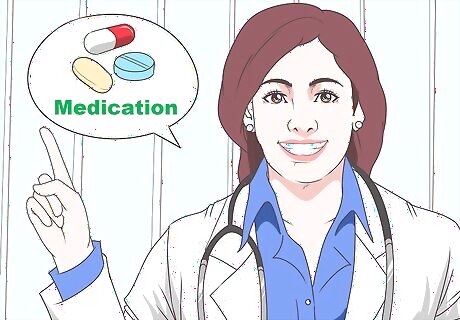
Talk to your doctor or therapist about medication for your PPD. In some cases, PPD can be managed with just counseling. However, you also may need antidepressants or hormonal therapy to help you feel better. Check with your doctor or therapist to see if these medications are right for you. Antidepressants are taken as daily pills. In most cases, you will take antidepressants in combination with counseling. While less common, estrogen replacement therapy may be used in addition to your antidepressants. These may be taken as a pill, patch, or injections. Let your doctor know if you are breastfeeding to ensure that the medication will not harm your baby.
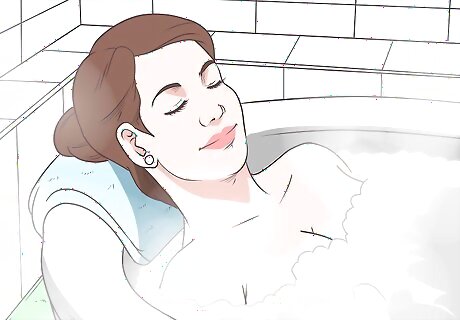
Take some time for yourself. Don’t feel guilty about carving out time for self-care everyday. Take a nap or a bubble bath. If you can, get out of the house at least once a day. Take a walk, run errands, or visit a friend’s house. Take the baby along with you if possible or ask your partner to babysit.
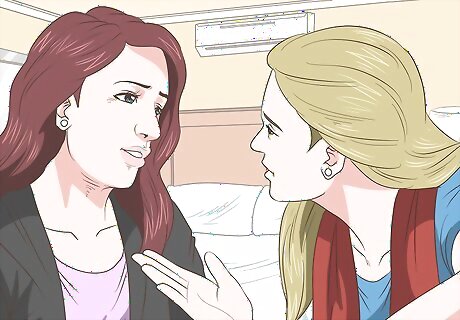
Ask your family and friends for help. It is important that you have support during this time. Tell friends and family what you are going through. If you're uncomfortable talking about it, choose just a few loved ones to confide in. Ask them if they would be willing to lend an ear when you are struggling. Don’t be afraid to talk to people about your postpartum depression. Let friends and family know when you are feeling down or if you need extra help on a certain day.
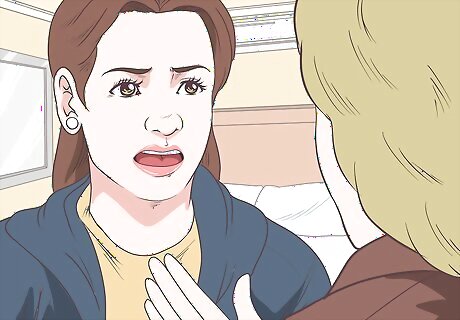
Talk to your partner about your relationship. Check in with your partner to see how they are doing. Have an open talk about your feelings, mood swings, and struggles. Make sure your partner knows what you need for support. Ask your partner if they can help care for the baby more while you try to find time to cope. You might ask them to handle nighttime feedings, to watch the baby while you take a nap, or to take turns on diaper duty. If your partner is also struggling, recommend that they see a therapist or doctor themselves.

Go to couple’s therapy if you think your relationship is suffering. If you and your partner are struggling to adjust to the hurdles of parenthood, couple’s therapy can help. The therapist will work with both of you to strengthen your relationship. If you’re already seeing a therapist, they can refer you to a couple’s therapist. Some may be willing to see you as a couple themselves.
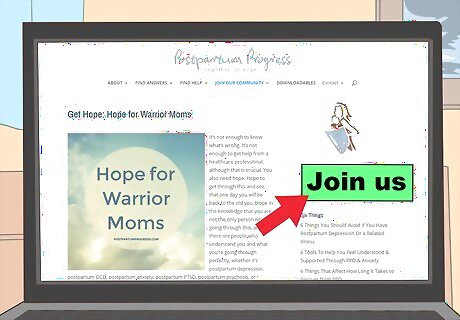
Join a support group for new parents or others with PPD. As a new parent, it is important that you have support. A support group gives you a network of people going through the same experience. You may find a group made for new parents helpful or you may want to look for a group specifically for people with PPD. Look for support groups at community centers, birthing centers, public libraries, and houses of worship. If you want to connect with people with depression or postpartum depression, ask your therapist if there is a local group. These may meet at a hospital, public library, or community center.













Comments
0 comment